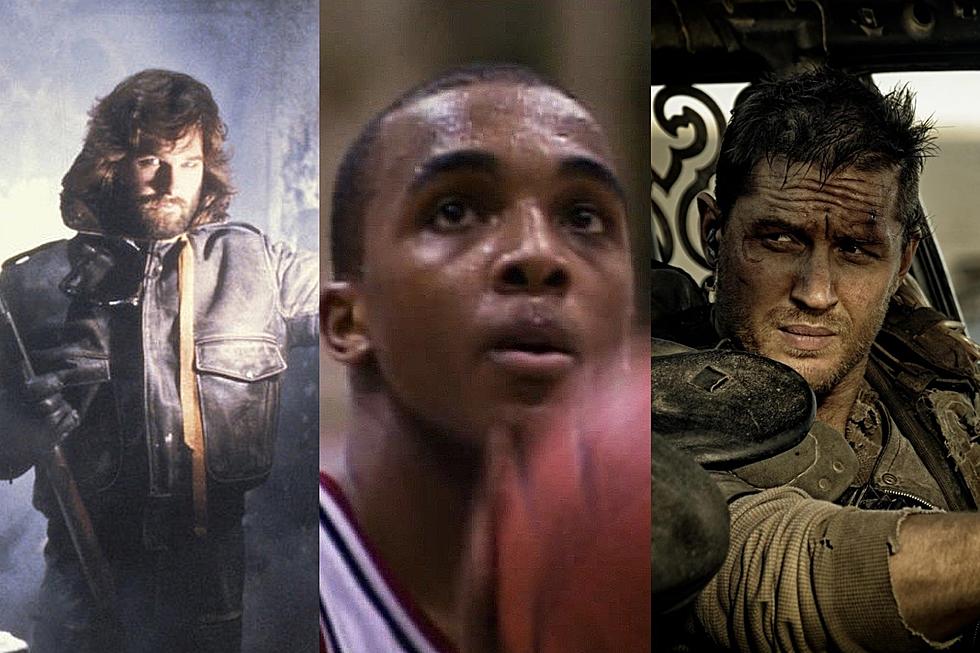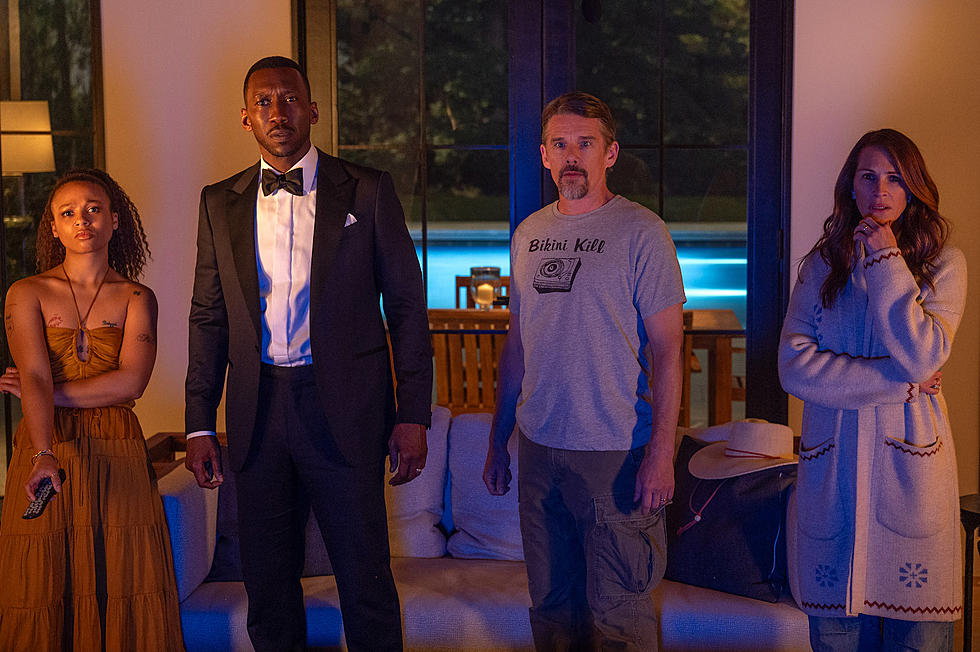
‘Boyhood’ Review
Every film is a cultural artifact. As singular works of art, movies are their own self-contained contributions to popular culture, but their often essential inclusion of things like music, fashion, and slang within their own narratives puts them into a unique space – art wrapped around art, culture enveloped in culture. It’s why even bad period-set films are so fun to watch, as seeing canny cultural representations is almost always amusing, if not a bit intriguing. Blame it on nostalgia, shared memory, or even a good old-fashioned affection for otherwise forgotten pop culture snippets, but movies that work hard to accurately depict a time period or an era always have an extra it of built-in entertainment.
Of course, most of those films are made after the time periods they depict, and thus can never be truly authentic. Richard Linklater’s ‘Boyhood,’ however, doesn’t need to concern itself with such things, because the director’s epic and ambitious (and, yes, this is the type of film that absolutely earns the right to be called epic and ambitious) new feature is almost achingly authentic – and its ability to capture culture without nostalgia is just one of the many things that recommend it as one of the most true-feeling fictional narratives to hit the big screen, not just in current cinema, but perhaps ever.
Conceived over a decade ago, shooting on ‘Boyhood’ began in the summer of 2002, with Linklater and his cast and crew meeting up each subsequent year to film a new section in the film (the last section was filmed in October of last year). The film is intended to follow the progression of a single young boy, from age six until age eighteen – essentially covering most of the formidable pieces of childhood, culminating with Mason (Ellar Coltrane) heading off to college. The film checks in with Mason over the course of twelve years, with each section of the film covering a handful of days during a specific year in Mason’s life.
Co-starring Ethan Hawke, Patricia Arquette, and Lorelei Linklater as the core of Mason’s family, the technical aspects and clean sense of continuity (and, yes, each member of the cast returned each time they were needed, no one was replaced during the film’s twelve-year production period) of the film are impressive on their own, but the emotional power and genuine joy of the production are what truly recommend it as something very special.
Linklater doesn’t muddy his narrative with intertitles, leaving it to his audience to ascertain when and where the film has jumped forward a number of months. Most of the changes are slight but noticeable, and modified appearances (Arquette’s Liv gets a vast array of helpful haircuts during the film’s later half, and young Lorelei suddenly sprouts up in the first act) and settings help clue viewers into when things have shifted. There’s a palatable pleasure in watching Mason, Sam (Linklater), and the rest of their family and friends grow up as the film winds on, literally physically and emotionally changing before our eyes. Large character evolutions and characteristics are intriguingly illuminated by both these physical changes, but subtle emotional moments really drive home the many rewards of such an inventive structure. It may be a gimmick, but it’s a good one that pays off in spades.
The film is packed with cultural references, running the gamut from ‘Harry Potter’ mania to the popular early jams of Britney Spears to now-prescient conversations about the ‘Star Wars’ franchise (and just about everything in between), and the seeming immediacy of those references is genuine (and genuinely entertaining). It adds yet another level of realism to a film that already feels so real that it nearly scans as a documentary. Moreover, Linklater is, as ever, almost unfathomably good at writing teenagers in believable and realistic ways. The filmmaker’s kids have always felt like kids, and they sound like them and act like them and move like them, and that point is driven home during the later years of ‘Boyhood,’ as Mason sprouts into a gangly and artistic teen. Linklater lingers over these final chapters of his film, and they are one of the few wearing pieces of a mostly deeply satisfying feature. A tighter edit would be welcome as Mason meanders through his teen years, even though his navel-gazing rings true.
As Mason, the majority of the film rests on young (and then, well, not so young) Ellar Coltrane. The newbie star is a real find, and he is consistently extremely comfortable and relaxed on screen. Playing Mason’s older sister Sam, Lorelei Linklater (yes, she is the director's daughter) also turns in a remarkable performance, and is charming to watch. On the parental side of things, Ethan Hawke appears in roughly half the film as Mason Sr., with Arquette taking on the role of more present parent. As Mason and Sam grow up, however, so does their dad, and Hawke’s later appearances are just as much about his maturation as they are about his kids’.
Ambitious and epic on the most intimate of scales, ‘Boyhood’ is a tremendous cinematic achievement that is also deeply relatable and consistently entertaining. The film is a unique and special experience that requires audience engagement, a willingness to journey alongside its characters, and an interest in being spirited away by a disarmingly personal story – but it’s also one that pays off with every frame and every year.
'Boyhood' premiered at the 2014 Sundance Film Festival.
More From ScreenCrush









